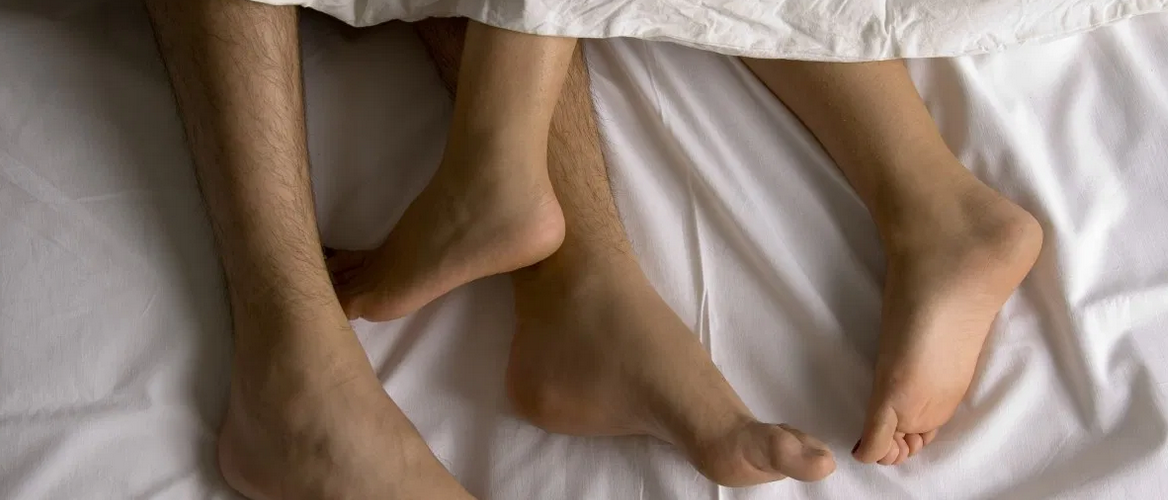
THE QUESTION:
“Is the Worst of the Sexual Revolution Over?”
THE RELIGION GUY’S ANSWER:
The New York Times ran a feature last month about teens wearing shirts that proclaim “Virginity Rocks.” This fad did not originate with those Christian “True Love Waits” crusaders but a YouTube personality who professed a “tongue in cheek” attitude but said he’s happy if teens advocate abstinence, and some actually do take the slogan seriously.
A dog-eared maxim in our business says “dog bites man” isn’t news but “man bites dog” is. Likewise, this fashion curiosity is newsworthy because so many young Americans think the opposite. And yet we encounter the question above, which was the headline of a recent article for thedispatch.com by David French, who has emerged as among the more interesting weekly commentators on modern morals and religion.

French’s article sidesteps two major aspects of the “sexual revolution,” legalized same-sex relationships, which are broadly accepted but remain central to unresolved religious-liberty disputes, and transgender or “non-binary” causes that are more contested.
His focus instead is on heterosexual principles in the heritage of all great world religions that have been challenged in the U.S. by easy divorce, rising promiscuity and cohabitation, and resulting single motherhood. Hefty majorities found those practices “morally acceptable” in Gallup’s annual values survey for 2019. (Adultery, by contrast, was still judged to be immoral by 89 percent of Americans.)
The headline’s use of “worst” conveys French’s view that the revolution has been unfortunate, and we’ll see more about that below.
First, although The Religion Guy is somewhat skeptical about French’s turnaround claim, let’s take a closer look in case something may be occurring.
The chief basis for his contention is W. Bradford Wilcox’s testimony on February 25, 2019, before the Joint Economic Committee of the U.S. Congress, led by Senator Mike Lee (R-Utah) and Representative Don Beyer (D-Va.). Wilcox (Ph.D., Princeton) is a sociology professor and senior fellow of the Institute for Family Studies at the University of Virginia.
The most dramatic data from Wilcox was that the U.S. divorce rate has gradually declined by more than 30 percent from the high point in 1980 and, he projected, may move lower yet. “A clear majority of marriages being formed today will go the distance.” Whatever the situation with individual couples, that is undoubtedly a favorable development for society considering the accumulated evidence on how broken marriages produce economic woe for single mothers and psychological distress and lowered life prospects for the children involved.
Second, Wilcox stated that the increase in children born out of wedlock “has come to a halt and is now falling, albeit modestly.” Building from a low point in 2014, the share of American children being raised by married couples in intact families has risen ever so slightly, from a low point of 61.8 percent to 62.6 percent currently. Similarly, federal “vital statistics” show the over-all birth rate per 1,000 unmarried women has declined from 47.5 in 2010 to 40.1 in 2018 (but remains a troubling 56.4 for African-Americans and 59.5 for Hispanics).
Shifting from statistics, note the attitudes of U.S. young adults ages 23-28 in the National Study of Youth and Religion sponsored by the University of Notre Dame. The findings are reported in a very intriguing book just out, “Back-Pocket God” (Oxford University Press) by sociologists Melinda Lundquist Denton of the University of Texas at San Antonio and Richard Flory of the University of Southern California.
Asked about whether people should “wait to have sex until they are married,” only 21 percent favored waiting while half said “not necessarily.” Among the segment of young adults identified as religiously “committed,” 58 percent said people should wait. Asked whether they themselves had cohabited, a 55 percent majority said yes compared with 36 percent among the religiously committed.
The Wall Street Journal reported March 9 on the unsettling connection between social class and the benefits of marriage and intact families — which may be exacerbated by a COVID-19 depression. Among Americans age 25 and up, nearly two-thirds with college degrees are married but only half of those with just high school or less. About half of middle-income Americans were married in 2018, a 16 percent decline from 1980, while there was only a 4 percent drop among high earners.
Congress heard much the same from Wilcox, who does not approach all this as a preacher of religious morals but as a social scientist examining practical results.
Continue reading “Is the worst of the Sexual Revolution over?“, by Richard Ostling.










